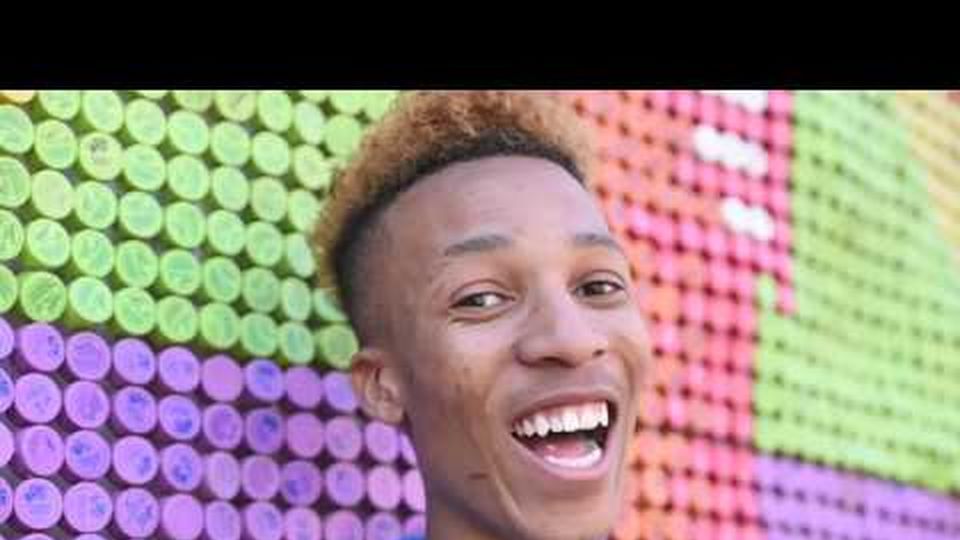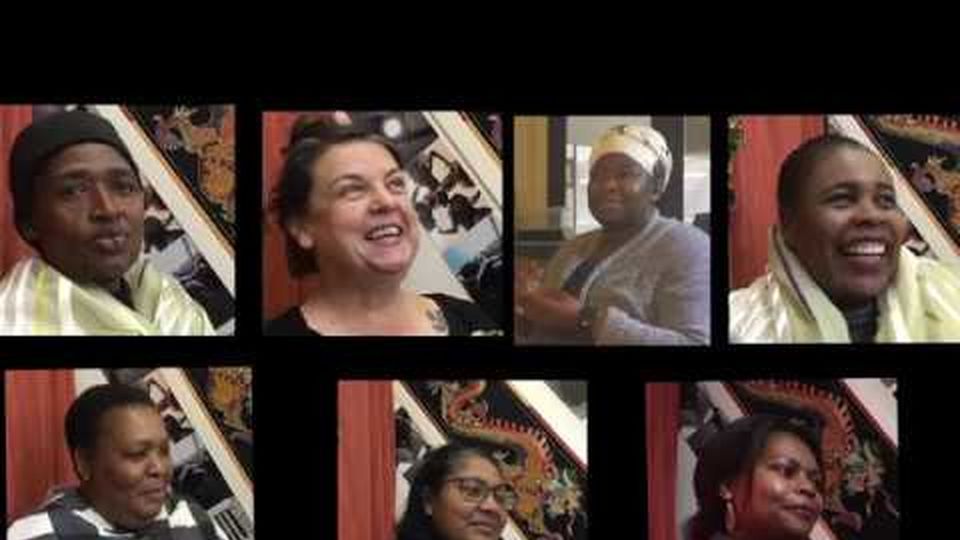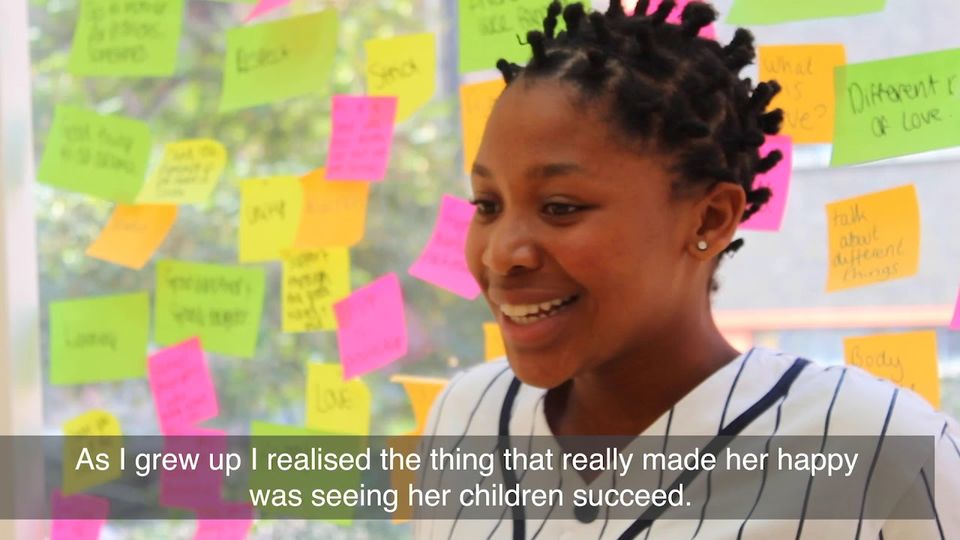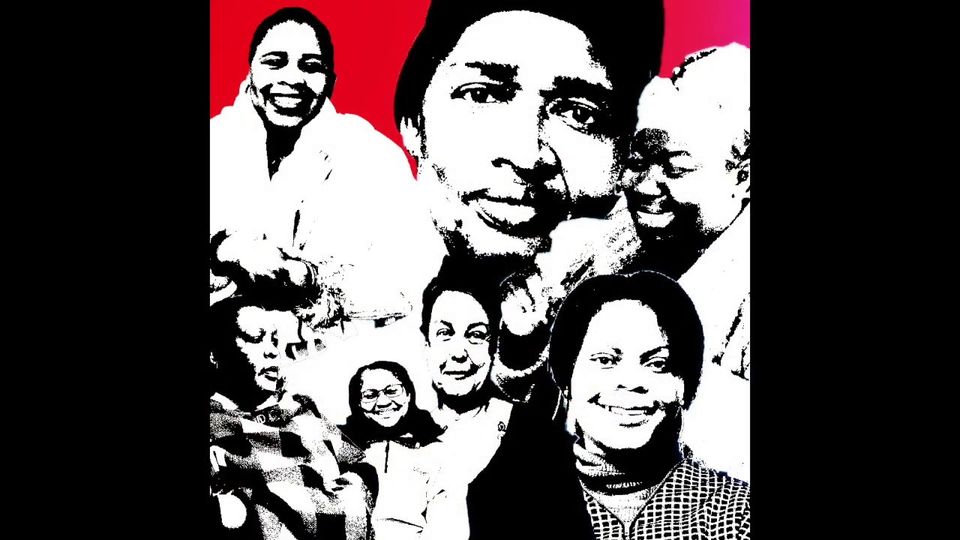An Interview with Dr Katharine Low
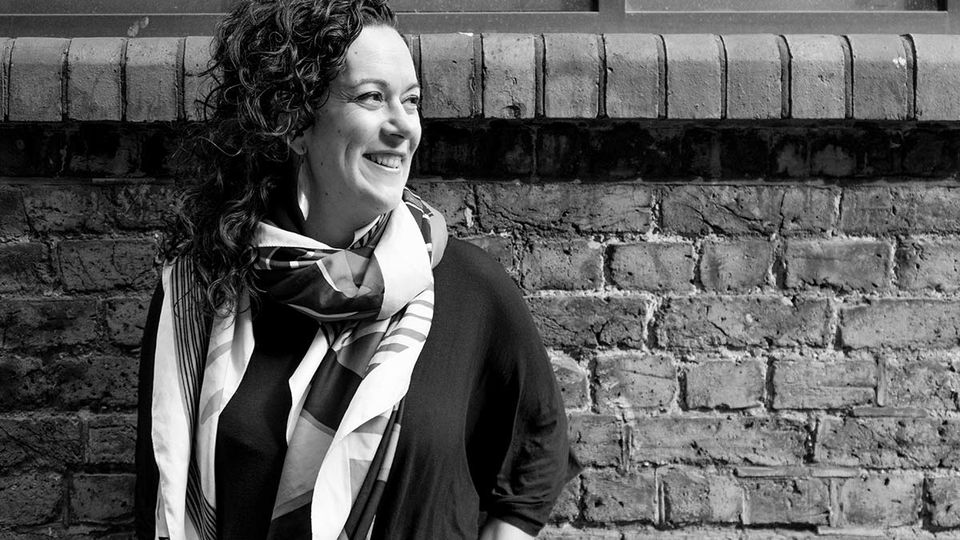
Dr Katharine Low is a Senior Lecturer in Community Performance and Applied Theatre at Central, with teaching and supervisory responsibilities across the School’s undergraduate and postgraduate Applied Theatre courses as well as Research Degrees. A research-practitioner in the field of applied theatre and sexual health, she has worked transnationally in South Africa, Tanzania, Europe and the UK. She has a deep commitment to feminist-led research, arts in health and theatre-making in urban settings, and the role of women in theatre.
We sat down with Kat to discuss the involvement that she and her students have had with the South African My Body My Space Festival, an annual festival of public performance and exhibitions that, for 2021, has moved into the virtual realm becoming the first arts festival to take place entirely on a dedicated WhatsApp line.
Tell us more about the My Body My Space Festival and how you got involved with the project?
The My Body My Space Festival is a performance festival that happens in South Africa every year, and it’s run by the Forgotten Angle Theatre Collective. It’s an amazing organisation and a brilliant festival that brings together groups of young people to make work together.
This year, as a result of COVID-19, they moved the festival online, and it’s just launched which is very exciting. The format takes the form of a series of exchanges around creating, and we were invited to make short films. Rather than it being a collective making together, in person, in a room, it’s been much more extended by being a collective that happens through virtual exchange. This has meant that as a festival, it has moved beyond South Africa and has been able to connect with lots of different countries, meaning we’re reaching a far wider audience and creators which is great and most excitingly, the My Body My Space Festivalis being presented as the first online, WhatsApp Theatre Festival in the world!
The Festival is using the same technology as the World Health Organisation, in terms of social media technology. Using this familiar technology, people can engage with all the performances via WhatsApp. Everything has been about low def; it’s all been very small levels of megabytes and thinking about people’s access to data and access more generally. The manner in which the My Body My Space Festival team has supported and promoted all the artists and makers involved has been extraordinary, especially in a time of social-distancing.
How are Central’s students involved with the Festival?
I’ve been working with Erica Lüttich, an artist in De Doorns, in the Western Cape in South Africa. The work with Erica is part of our Global Challenges Research Fund and this is now our third year of funding. We’ve worked with two collaborators in South Africa, the Outreach Foundation and Gerard Bester, and with Erica.
We’ve been working on a project with women in the Western Cape, and the idea originally was that we were going to be there in person but, due to COVID-19, of course, that hasn’t been possible. Instead, we’ve begun an intergenerational project where we meet once a week virtually, and the women meet in person in De Doorns. The project is a creative and artistic exploration of what it means to be a woman at the moment, and it also creates a space for maternal grief and maternal interaction. It provides spaces to meet and talk and process a bit about what it means to have lived through COVID-19, and to have lived through quite severe lockdowns in South Africa. And because it’s an intergenerational space, some of the women come along with their daughters, and some grandmothers come, as well.
We noticed that a lot of the young women were really into writing and different types of making. Erica, who has worked with My Body My Space Festival and the Forgotten Angle Theatre Collective before, signed us up to be part of the Festival. So, this year, we worked with some of the young women from our Western Cape project and South African artist Adrian Smurf Tony, and I invited some of our new first years from the Contemporary Performance Practice course to join in on the project. An exchange was setup between a group of young women in the De Doorns and a group of young women here in London.
We also had a third-year student, Alex Netea, who is working on professional placement with Erica and myself. Alex is from Romania, so she connected with a group of young people in Romania, as well. We created six short films, which were about young women sharing their experiences of what life has been like under COVID-19 and living through COVID-19 at this point in time. One of the key themes we kept returning to was the idea of the colour blue, which one of the young women had suggested, and a poem that another one of the Central students had used and written as a basis for exploration during our workshops.
This work builds on research and collaborative work that you’ve been undertaking in South Africa over a number of years. Can you tell us a bit more about this work?
Sure. So, I was born in South Africa, and a lot of my practice and research has always been in collaboration with South African colleagues and practitioners who’ve become friends through our working together. My PhD research and much of the work I’ve done around theatre and sexual health communication has also been based in South Africa.
In 2014, I started working with Gerard Bester at the Outreach Foundation, where we looked at questions around gender and sexuality and creating spaces for young people to talk about sex. The Outreach Foundation, is based in Hillbrow in Johannesburg and has an arts programme, where they run weekly - or multiple days of the week – afterschool drama clubs for young people and schools. They also run a high school festival where they bring in plays from 30 different high schools around Hillbrow. The Foundation provides the young people there with great theatre access and all sorts of different types of creative arts.
Gerard has been an collaborative outreach host for Central students for many, many years, inviting our students to come and work in partnership with him and Phana, Gcebile and Mike, the other facilitators at Outreach Foundation. Last year, due to COVID-19, the project moved online.
The other thing we’ve been doing with Outreach Foundation is building closer links to local healthcare services and running projects linking them up. There’s an excellent adolescent and youth friendly clinic in the next block from Outreach Foundation, and so one project we did as a part of the Global Challenges project was to talk with young people about their health rights. A number of clinics in South Africa run Adolescent and Youth Friendly Services, which are closely aligned with South Africa’s exemplary Adolescent Health rights,. An Adolescent and Youth Friendly Service places the young person at the centre of their knowledge and their body in terms of being able to articulate and access the reproductive and sexual health services they need. (One of our projects utilised puppetry object-based work with some of the young people at Outreach Foundation, culminating in building a relationship with the local health clinic and with encouraging young people to access the clinic and to know that it’s their space. Gerard, Phana, Ben and I have written a short account of the project which you can read here.
Then, in 2018, in collaboration with the Outreach Foundation held a large festival called Extraordinary Ordinary Women, which used digital storytelling to celebrate some of the extraordinary women who live and work and play in Hillbrow. Women’s stories often don’t get given much airtime, so we worked with a group and asked them to nominate some of the ‘extraordinary ordinary’ women they knew. As a collective, we trained this group of people on how to use digital technology and to engage with digital storytelling. Five short films were created, and we hosted a celebration event where the films were premiered. And we also hosted an Open Day for the Outreach Foundation, which was called Shifting the Narrative of Hillbrow. We had over 350 people come to take part debate and celebrate together.
Central’s Collaborative Performance Practice students typically undertake collaborative placements in South Africa each year. How have these placements been impacted by COVID-19 and how have the course teams and students adapted their practice in response to the challenges posed by the pandemic?
We’ve carried on with our partnerships and our work. Last year, with COVID-19, we ran an online digital storytelling exchange with groups of young people, and we started a project working in Loxton in rural Karoo on an ecological COVID-19 response project. I think last year was a big turning point for us in terms of COVID-19 because it meant, fundamentally, that no-one could travel anywhere. I think we’ve missed the opportunity to just sit side-by-side and make and talk together as it is a hugely important part of our work,. And we’re not necessarily talking about just the big topics, but we talk about the small topics, as well. it is something that all our students and our colleagues in South Africa and their young people have missed out on this year.
However, it has meant that in terms of our Central students, everyone was able to travel virtually to South Africa. And, for the young people in South Africa, they were able to be able to travel virtually to the UK. In that sense, we’ve been able to share much more than before, and to do it in a different way. We’ve explored new ways of making, and now we’ve got a different way of creating and interacting together. We’ve learned a different way of facilitating. It has certainly opened up different ways of exchange which, I think, are exciting and which offer a variety of connecting where perhaps we haven’t necessarily always been able to connect. Of course, it’s all hugely reliant on finances and access to data, so a lot of the work is about ensuring that everyone has equitable access to data and has the technology or the equipment with which to access the internet, or to share films or take photos. Technology and inclusive access is a really fundamental part of this work.
Your recent book, Applied Theatre and Sexual Health Communication: Apertures of Possibility was published late last year, and examines the partnership between applied theatre and sexual health communication. How did the idea for the book come about, and can you tell us more about it?
My book grew out of my PhD research which was undertaken in 2008 and 2009 in Nyanga, which is a township in Cape Town. I had the opportunity to work with an extraordinary group of young people, and we worked alongside each other and with each other, and we’ve kept in communication as a group since then.
The book takes into account the practice we did together, and places it within a wider conversation about how we talk about sex: how do young people talk about sex, and specifically within the South African context, in what ways are we having that conversation. The book also relates, I hope, to other young people living outside of South Africa. Fundamentally, it’s an outcry for different ways of having conversations about sexual health – about what is good sex, safe sex, sex with whom, fears around sex, sexual health. There is not one way of having a conversation about sex, and we need spaces that young people can come into to talk about and feel able to talk about sex on their own terms.
The other thing it does is that it offers an articulation of how, as applied theatre practitioners, we can start to take account for and note change. I offer the term or the idea of apertures of possibility which invites the facilitator to take a pause and consider what happens in the margins of the work, which may be unintentionally overlooked, suggesting that within these moments lie alternative values and ways of considering the impact of our practice.
What else are you currently working on?
The other thing I’m working on at the moment is a really exciting follow-up project. Professor Gilli Bush-Bailey and I have been part of a research team that have investigated and supported Tonic Theatre’s Advance programme which worked with 20 National Portfolio Organisations to think about and question and see what changes could be made in terms of improving gender representation within the performing arts industry. The NPOs looked at everything from improving touring conditions for female actors to creating spaces for female choreographers to develop; thinking about what kind of spaces or structures are needed for female theatre companies to expand and to put on practice.
Each one of the 20 NPOs has developed a specific research question that was relevant and accurate for their own organisation. The first cohort in 2014 was made up entirely of theatre companies, and then in 2016 the project was run again but this time it included ballet, dance companies and opera as well as theatre organisations and companies.
What I’m doing at the moment, with Gabriel Vivas-Martínez as the most brilliant research assistant, is a retrospective piece looking and speaking with theatre companies, and looking back at what they have achieved 4-6 years on in the period since their first engagement. We’re developing short case studies and researching the impact of the organisations’ work and the impact it has had on the theatre industry. Part of the impetus is to place a marker down so that the gains we have seen thus far are not lost as a result of COVID-19. The report is published on Tonic’s website.
You can find out more about My Body My Space by visiting the Festival’s official Facebook page. To learn more about Kat’s work and research, please visit her website. Her book, Applied Theatre and Sexual Health Communication: Apertures of Possibility is available to purchase through her publisher, Palgrave Macmillan.

